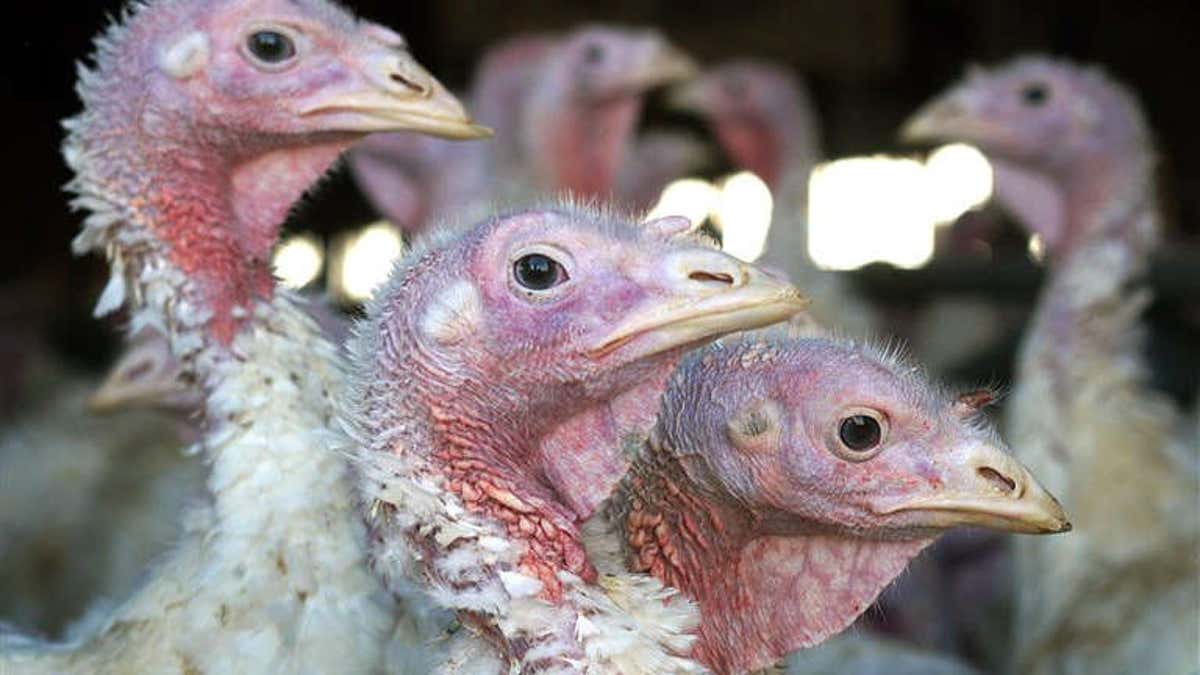
x-default (AP)
MINNEAPOLIS – A deadly bird flu strain was confirmed Friday at one North Dakota turkey farm and at four more in Minnesota, raising the number of farms affected across the Midwest to 20 and the toll to almost 1.1 million birds since the outbreak was first confirmed in early March.
The U.S. Department of Agriculture said the new cases in Minnesota of the highly contagious H5N2 strain are in Cottonwood, Lyon, Watonwan and Stearns counties. The four new farms housed a combined 189,000 turkeys.
In North Dakota, State Veterinarian Susan Keller said the National Veterinary Services Laboratories in Iowa confirmed the H5N2 strain of avian influenza in a flock of 40,000 turkeys in Dickey County. It's that state's first confirmed case of the flu strain.
Officials in both states said those turkeys not killed by the virus will be euthanized to prevent the disease from spreading.
Once those birds have been destroyed, the 20 farms in Minnesota, South Dakota, North Dakota, Missouri, Kansas and Arkansas will have lost nearly 1.1 million turkeys. Canadian officials confirmed Wednesday that a turkey farm in southern Ontario with 44,800 birds was hit, too. The USDA has sent more than 40 experts to Minnesota to assist in the response.
Minnesota Agriculture Commissioner Dave Frederickson said his state has about 450 farms that raise around 46 million turkeys annually. The losses so far work out to about 1.9 percent of the state's yearly production.
"For these companies, and obviously for the farmers and their families that have been impacted by the H5N2 virus, there are some really difficult times ahead," he said.
Officials stress the risk to public health is low and that there's no danger to the food supply. No human cases have been detected in the U.S., said Dr. Joni Scheftel, state public health veterinarian with the Minnesota Department of Health.
The largest farm hit was a 310,000-bird farm in Meeker County owned by Jennie-O Turkey Store, the country's No. 2 turkey processor, where the virus was confirmed Wednesday. Three of the new cases were also connected with Jennie-O, a division of Hormel Foods Corp. The company said the Watonwan County farm is company-owned, while the Cottonwood and Lyon County operations were contract growers. Altogether, seven Jennie-O owned and contact farms have lost 626,000 turkeys because of the outbreak. But the company says its losses are a small percentage of its overall production.
In North Dakota, Keller said quarantine efforts were underway Friday.
Scientists suspect migratory waterfowl such as ducks are the reservoir of the virus. They can spread it through their droppings. But Michelle Carstensen, wildlife health program supervisor with the Minnesota Department of Natural Resources, said tests still haven't found any wild birds with the disease or any H5N2 in their droppings in Minnesota so far. Test results are expected next week on samples collected near affected farms in three counties, she said.
Officials are trying to determine how the virus has managed to evade the strict biosecurity that's standard practice at commercial turkey farms. The virus can be carried into barns by workers or by rodents and wild birds that sneak inside.
But Dr. Beth Thompson, assistant director of the Minnesota Board of Animal Health, said investigators haven't determined how the virus entered any of the infected barns. She said the industry's biosecurity practices are "top notch." And Fredrickson disputed the suggestion that those measures aren't working.
Thompson said they hope the threat recedes as the weather warms and the spring migration ends. Flu viruses prefer cold, wet conditions, she said, so they're hopeful that hot, dry days will kill it off. She said that would prevent it from being tracked into barns, if that's what's happening.
Carstensen said they still don't know if this virus will be a long-term problem. It was first detected in North America in December on the West Coast, and scientists don't know much yet about how it behaves, she said.
